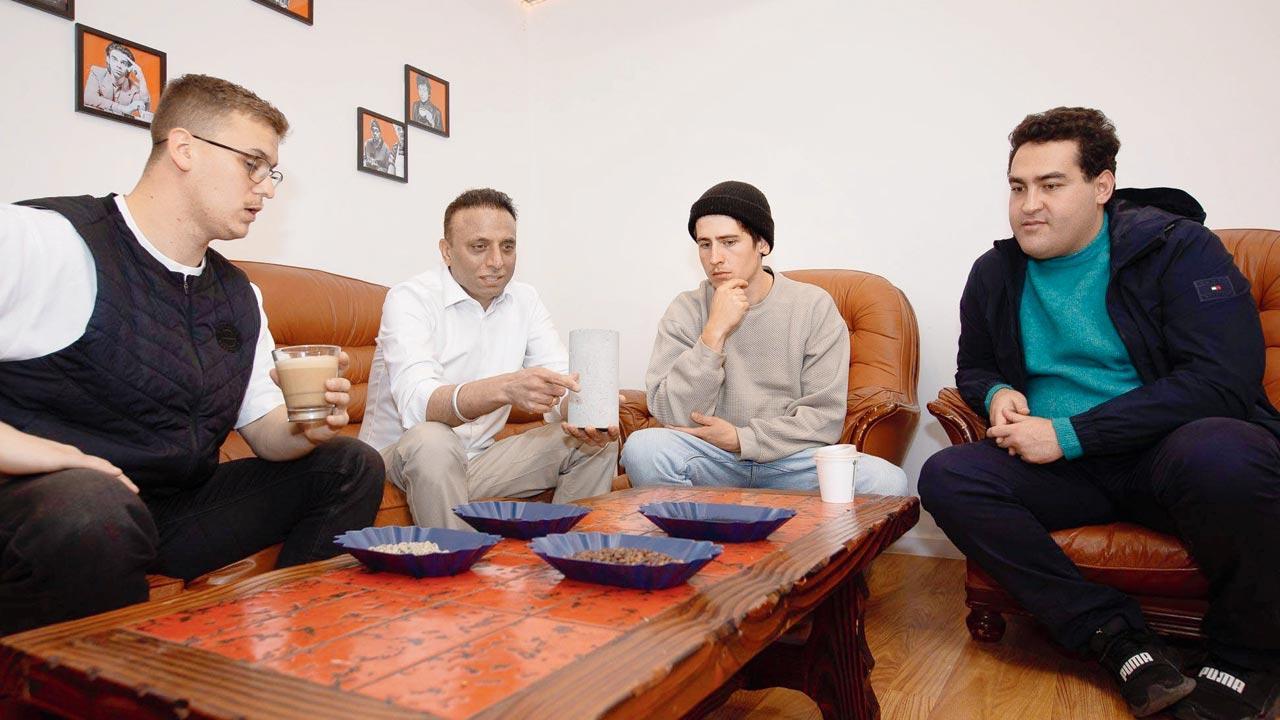
It can wake you up, it is an anti-oxidant, it is said to be nature’s best pre-workout drink when it comes to burning fat while working out, and now, it can make stronger houses.
No, this writer has not had too much coffee. Just the usual four cups since morning. The last fact mentioned above is supported by scientific research, detailed in a research paper titled Transforming spent coffee grounds into a valuable resource for the enhancement of concrete strength, published in the Journal of Cleaner Production this year. And the lead author of this research paper is Dr Rajeev Roychand, an Australian national originally from sadda Punjab.
Born in the Gurdaspur district, Roychand grew up in Amritsar and moved to Australia in 2005 for higher studies, after completing his Masters in Civil Engineering.
“I was living a carefree life on my father’s hard-earned money, with absolutely no vision for my future,” Roychand tells mid-day through an email interaction. “It was making my father quite anxious. He finally decided to send me to Australia, hoping that I may become serious when I won’t find anybody to pamper me all the time and when I feel the realities of the harsh life.”
The move came as a blessing in disguise for Roychand, who, for the first time, learned the importance of money during his first job at a restaurant.
“The owner called me for a day. It was a very busy restaurant and I worked from 3 pm to 11 pm. without a single second’s break. I worked so hard that the owner of the restaurant asked me to become a regular employee of the restaurant. This extreme hard work was like a sudden shock for me, and I was not mentally prepared to accept this job offer. Seeing that I wasn’t interested, the owner refused to pay me. I went to the station to go back home and cried a lot at the station,” he recalls
Roychand went on to work as a taxi driver till 2008, during which time he also got his citizenship, and then worked as a structural engineer at a private firm. Research, however, was always his calling.
“I was always fascinated by the research field, so in year 2013, I decided to do my PhD at RMIT University, Melbourne,” Roychand says. “The focus of my research was developing a low carbon footprint alternative to the conventional Portland cement. By the time I completed my PhD in year 2017, I was successful in developing a high durability zero cement concrete utilising different industrial by-products like fly ash, slag, silica fume and some chemical additives.”
The road to Roychand’s Eureka moment in his latest project, funnily enough, started over a cup of coffee, when the research group he is part of at RMIT met to discuss transformation of different waste materials to strengthen concrete.
“We decided to start with coffee waste, taking it as a challenge. We worked on this project for about a year, and finally we came up with a solution that could transform this waste into a valuable additive for strengthening concrete,” he says.
For the benefit of the lay reader, he breaks down the research into simple words.
“Concrete is made up of cement, water, sand, and gravel. In this project, we found that heating spent coffee grounds at 350°C temperature in the absence of oxygen significantly improves its properties. When this treated coffee waste is used as a replacement for sand, it provides a 30 per cent improvement in the strength of concrete,” he explains.
The team, guided by Professor Jie Li and comprising Roychand and his fellow researchers Shannon Kilmartin-Lynch and Mohammad Saberian, Roychand, made their findings public earlier this month, leading to widespread fame. Apart from several research enthusiasts and experts who spoke about the feat, even the official account of the Australian Consulate in India lauded their achievement.
But for them, the most exciting part is that the waste that was ending up in landfills is now ready to be tried out as a high value by-product for construction applications. But that’s not all. Roychand’s research might soon be coming to India, he reveals.
“No doubt, India could immensely benefit from this research. I will be the happiest person if any of my research could benefit my motherland. We are in consultation with one of the companies from India,” he shares, adding, “I still do miss a lot of things, like Amritsari food, and visiting friends and relatives during festivals. But my world revolves around science,” he concludes.
source: http://www.mid-day.com / Mid-Day / Home> Sunday Mid-Day News / by Gautam S Mengle / September 10th, 2023

